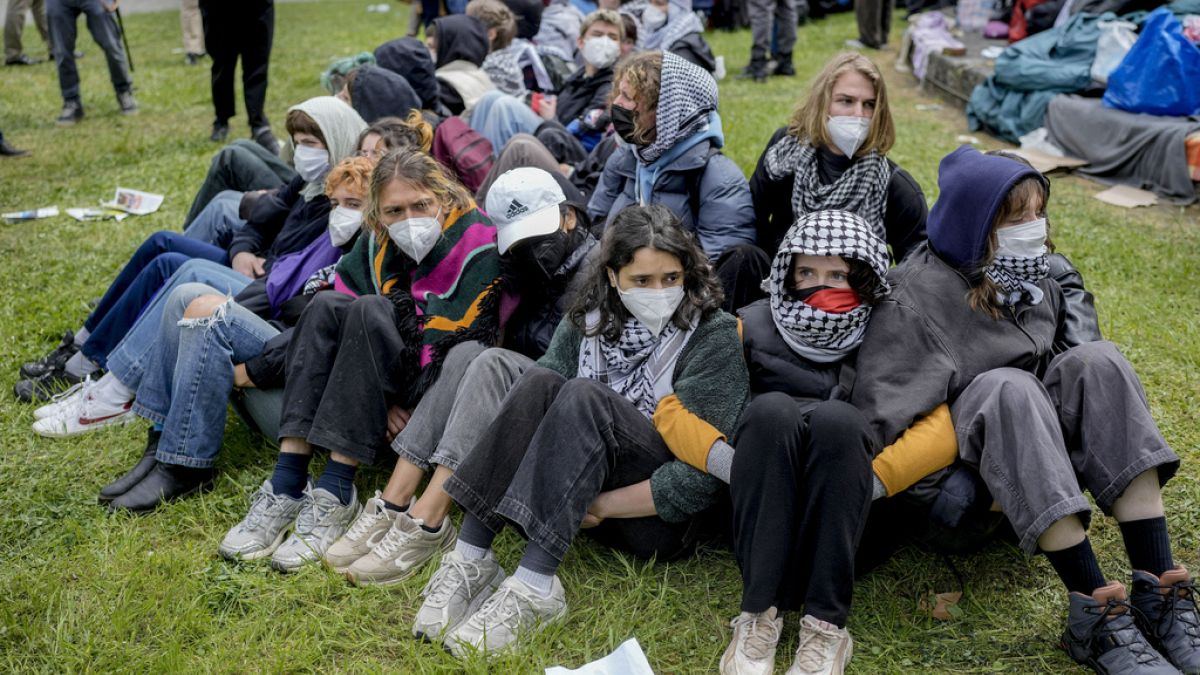Pro-Palestinian protests have seen a resurgence in Europe as Israel launched a ground assault on Rafah despite a ceasefire proposal accepted by Hamas. Students at various universities across the continent have taken to the streets to show their support, with protests and encampments being set up in Finland, Denmark, Italy, Spain, France, Britain, and more. In Germany, hundreds of pro-Palestinian protesters occupied a courtyard at Berlin’s Freie Universität, setting up tents and chanting slogans such as “Viva, Viva Palestina”. Police had to intervene and carried away some protesters with a struggle. Similarly, in the Netherlands, 125 activists were arrested and a pro-Palestinian demonstration camp was broken up at the University of Amsterdam. Scuffles between protesters and police also broke out at the University of Vienna in Austria.
These protests come in the wake of similar demonstrations and actions in the US, where the right to protest has sparked a fierce national debate. Authorities in various city locations have called in police to shut down protests, including at Columbia University in New York. However, students and activists continue to defy these orders and voice their support for Palestine. The movement is gaining momentum across the globe, with more students and supporters joining the cause each day. These protests serve as a powerful signal of solidarity with the people of Palestine and demand action to end the violence and injustice faced by the Palestinian population.
The protests in Europe have also seen universities and government authorities taking a stand on the issue. The University of Vienna and the Austrian Ministry of Education have distanced themselves from the protests, indicating a divide in opinion even within academic and official circles. This reflects the complexity and sensitivity of the Palestinian-Israeli conflict, with different stakeholders holding diverse perspectives on how to address the situation. The protests have thus sparked not only a public outcry but also internal discussions within universities and governmental institutions on how to navigate the ongoing crisis and support the rights of Palestinians.
As the protests continue to gather steam in various European countries, the voices of students and activists are becoming increasingly difficult to ignore. The calls for solidarity and action are echoing across campuses and city streets, with demands for universities to sever ties with Israel and for governments to take concrete steps towards peace and justice in the region. The protests serve as a reminder of the power of collective action and the importance of standing up for human rights and dignity. They also highlight the critical role that young people play in shaping social and political movements, challenging existing power structures, and advocating for change on a global scale.
The resurgence of pro-Palestinian protests in Europe is part of a broader trend of activism and advocacy for Palestine that has swept across various countries in recent years. Young people, in particular, have been at the forefront of these movements, using their platforms and voices to raise awareness and mobilize support for the Palestinian cause. By organizing protests, setting up encampments, and engaging in acts of civil disobedience, students are demonstrating their commitment to justice and solidarity with oppressed communities. The protests in Europe are a reflection of the growing global awareness of the Palestinian struggle and the increasing pressure on governments and institutions to take a stand against human rights violations and state violence.
The wave of pro-Palestinian protests in Europe is a testament to the enduring spirit of resistance and resilience among activists and supporters of the Palestinian cause. Despite facing opposition and repression from authorities, students and activists continue to speak out and demand justice for Palestine. Their actions serve as a powerful reminder of the interconnectedness of struggles for justice and liberation around the world. As the protests gain momentum and attention, they are also shaping public discourse and pushing for a more critical engagement with the complex dynamics of the Israeli-Palestinian conflict. The voices of students and activists in Europe and beyond are calling for an end to violence and occupation, and for a just and lasting peace in the region.










